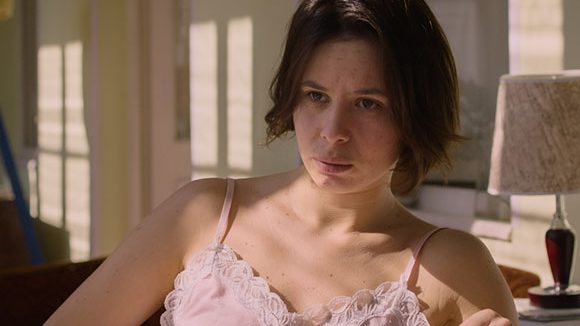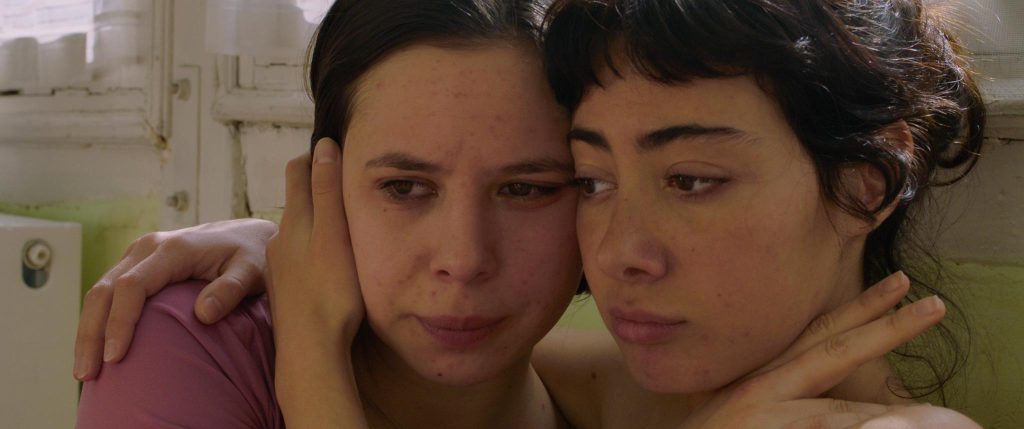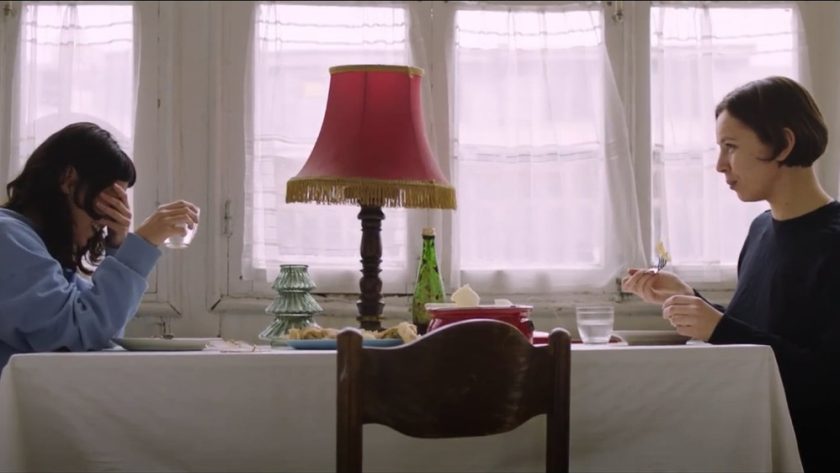BFI’s London Film Festival is in town! The FilmSoc Journal is back for the 66th edition of the city’s largest film festival, delivering a look at the hits and misses of the 2022-23 season.
Alexia Mihaila, co-editor in chief of the Journal, highlights “A Room of My Own,” directed by Ioseb Bliadze. The film follows Tina’s journey to self-discovery and empowerment. While she rents a room from Megi, through their bond, Tina learns how to have autonomy and break free from male dependence.
A Room of My Own presents a claustrophobic coming-out story. At first, I presumed this LFF choice would find a better fit within Flare’s queer cinema lineup, yet both visually and narratively, it lacked persuasion. However, this film secured a spot among the Nominee Audience Awards at LFF this year and clinched the Best Feature Film title at the 2022 Film Festival Cologne. Definitely, there are nuances I might have overlooked during my initial viewing.
Observing from a viewer’s standpoint, the unembellished depiction of Georgian society might come across as mundane, leading many to hastily label the film as merely ‘fine’ or perhaps even veering into ‘tedious’ territory. This underscores the necessity of placing the film’s origins in context, as this facet of its context breathes life into the underlying plot. Filmed amidst the pandemic, the absence of overtly sensational events is striking, as the film predominantly delves into the realm of introspective self-evaluation. This seems to align with the intentions of the writer and actor Taki Mumladze, who portrays Tina. From the outset, it becomes evident that the film seeks to prompt us to peer inward.

While drawing parallels to antecedents like “Disobedience” (2017) is tempting, this inclination arises from shared elements such as an inhibited journey of self-discovery and the presence of an insular and close-minded community. However, “A Room of My Own” charts a distinct trajectory for its characters. While Tina is in the process of acknowledging her sexual identity, the narrative’s focal point is not the queer relationship per se. Instead, the spotlight illuminates Tina’s expedition of self-revelation and self-actualization.
“You can’t breathe” – Magi
“I always feel like that” – Tina
“Your perception of the world is different and you feel everything twice as much” – Magi
The storyline can be broken down into two polarizing leads: Tina (Taki Mumladze), who needs to let loose, and Megi (Mariam Khundadze), who needs to stop wasting time with people she doesn’t like and finding solace in taking pills, and drinking. Although Megi embodies traits of the “manic pixie dream girl,” the film’s somber and earnest ambiance fails to accommodate the full realization of this cinematic archetype. Instead, the narrative predominantly revolves around a sheltered rendition of a coming-out journey. Beyond this, it serves as a fleeting reflection of the times, as the two don’t seem to project a future together; nor do they need to. Both Tina and Megi serve as pivotal junctures in each other’s lives, facilitating self-discovery, regardless of the potential longevity of their relationship.

Needless to say, the film refrains from ostentation or vibrancy, opting instead to present queer relationships in their authentic form: as conventional affection-driven partnerships. While this clarification might seem unnecessary, it proves vital within the film’s audience and local context. A precedent set by the 2019 Georgian queer film And Then We Danced highlights the urgency. As reported by the BBC, the cinema premiere of that film was marred by an incident where over 500 men sought to forcibly enter the Tbilisi cinema, subjecting the audience to physical and verbal assaults. Within Georgian society, homophobia is deeply ingrained, exemplified by prominent patriarchal figures likening LGBTQ+ individuals to criminals and drug addicts.
Overall, these notions of contentment and self-sufficiency depicted in A Room of My Own arise from the pandemic, a time when individuals directed their attention toward the few available moments for presence. It’s a narrative of self-discovery for a millennial, catalyzed by self-expression and the quest for personal space. The film exudes an aura of genuineness and authenticity, underscoring the pandemic’s impact on our perceptions of relationships and social interactions, and I believe that’s why it has had such great reception amongst critics and audiences.
Watch the trailer for a A Room of My Own here:




